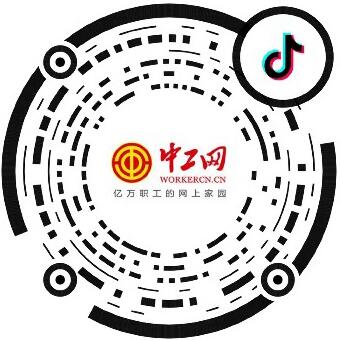Original title: Building a convenient and efficient digital government to strengthen public participation
Recently, the General Office of the CPC Central Committee and the General Office of the State Council issued the Opinions on Strengthening the Construction of the Coordination and Supervision System of Administrative Law Enforcement, emphasizing the need to promote the digital construction of administrative law enforcement supervision. The digital construction of administrative law enforcement supervision is an important part of the digital government, which is an important embodiment of the current traditional government moving towards digital government.
Digitization is not only the electronization of information process, but also the comprehensive innovation of government functions, which has a profound impact on all aspects of society. The construction of digital government significantly enhances the government's ability to process data and provide services, so that the public can enjoy government services online. Through the establishment of a large database, all government departments can share information. The construction of digital government has stimulated the vitality of information and e-commerce technology and supported the government to achieve economic policy goals. At the same time, the use of network services not only improves the convenience for the public and enterprises to obtain government information, but also enhances the interaction and trust between the government and the public, which is extremely important for government management. In addition, digital technology enables the public to participate in policy making and enhances government transparency and accountability.
With the development of digital government, people centered services are increasingly valued. The establishment of digital government depends on the public's trust in online technology and confidence in electronic services. Digital projects lacking public participation lack value. In the digital era, the government should change its relationship with the public and the way it provides services. In the construction of digital government, it is necessary to rethink the methods of serving the public, especially in data management, privacy and security. The public is very concerned about the protection of personal information, and privacy protection is a priority in the construction of electronic services. Therefore, digital government needs to improve the public's trust in digital services and urge them to choose these convenient services. The focus of digital government construction is to use information technology to enhance interaction with the people and improve governance efficiency. This involves creating easy-to-use service platforms, such as mobile applications and self-service robots, to meet public needs. These platforms should provide 24x7 access to streamline processes to reduce costs and improve efficiency. Digital government should also optimize services through user feedback, and interact with the public in real time through social media. In addition, it is necessary to deepen the public's understanding and participation in policies and enhance trust and satisfaction with the government by strengthening information disclosure.
Digital government not only brings traditional services to the Internet, but also encourages us to reconsider how to make government services more responsive to public needs. In the past, public management often operated independently, and the integration of services was often ignored, which led to the failure to take care of the overall needs of users, resulting in low service efficiency and waste of time. By analyzing the reasons for the failure of some government IT projects, it can be found that the main reasons are the lack of coordination and the isolated actions of various institutions. Inaccurate business planning, inconsistent standards, difficulties in data sharing, uneven regional development and inadequate government enterprise cooperation are also the challenges facing the current construction of digital government. The construction of digital government aims to promote standardization and sharing among regions and promote collaboration among departments by establishing a cross level coordination management system and linkage mechanism. Digital government advocates a new public management model, replacing the rigid hierarchical structure with flexible network organizations, replacing the traditional top-down decision-making through consensus and bottom-up methods, encouraging the participation of a wider range of stakeholders, especially the public, and improving the efficiency and productivity of public services with market principles.
With the complexity of government structure, all departments need to exchange information and technology efficiently. The digital transformation enables the government to break through the conventional hierarchy and realize information integration and cross sectoral decision-making. Local governments and public institutions should transform into an integrated service platform to meet the requirements of cooperation and networking and meet the public's expectations for instant, convenient and personalized services. This requires the government to strengthen cross sectoral collaboration and create a people-oriented digital platform. Facing the future, the government should develop horizontal collaboration rather than a single level, so that the public can easily access services in a unified system. The government should be aware of the importance of information integration - digital government should be an integrated network platform to ensure the interconnection between institutions. Provide information and services through one window, promote the flow of information among governments, organizations and institutions at different levels, and overcome the limitations of data format and system architecture.
At present, there are many ways to promote the development of digital government through the connection of portals and service agencies. It should be noted that real digital government cooperation has gone beyond data and platform sharing and involves comprehensive reform of regional integrated governance. Technical means include unified service channel, mobile access support, security data sharing and data-driven decision-making to achieve cross departmental system collaboration. Digital government uses big data and artificial intelligence to integrate and share data, accelerate information exchange, improve efficiency and decision-making quality. Intergovernmental collaboration promotes resource and information sharing, simplifies processes, reduces costs, and provides comprehensive support for decision-making. In the end, this cooperation analyzes user needs through resource sharing to achieve service refinement management, improve adaptability and responsiveness. Cross sectoral and hierarchical collaboration not only improves government efficiency, but also helps meet public needs and create an efficient and integrated modern government.
( Zheng Wenyang, The author is a researcher of the Digital Rule of Law Government Research Institute of Southwest University of Political Science and Law)













